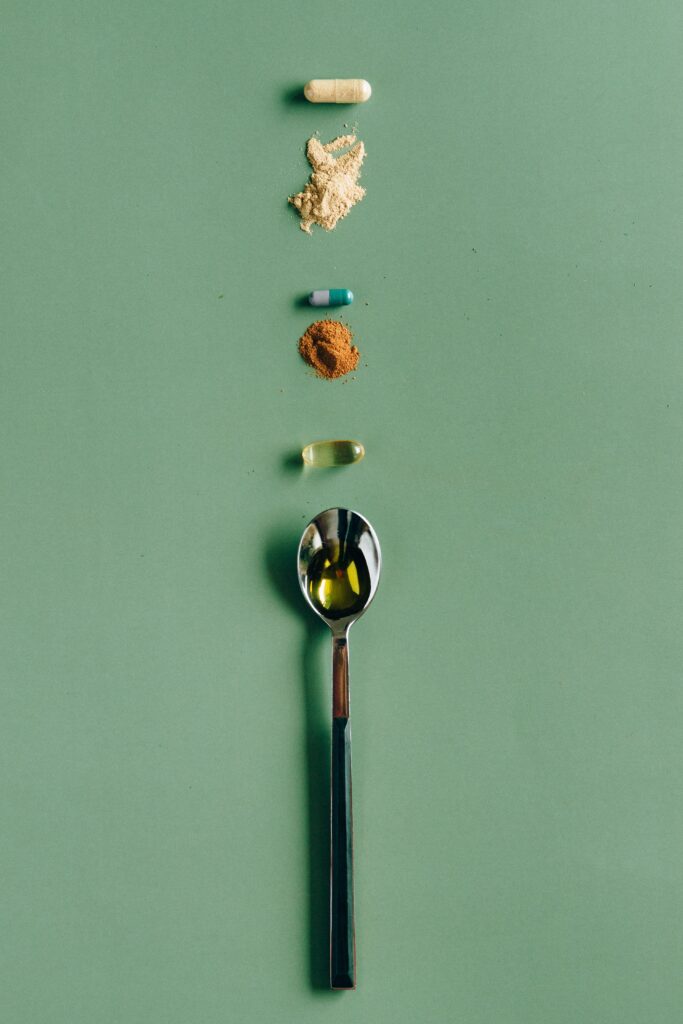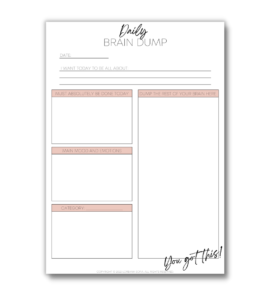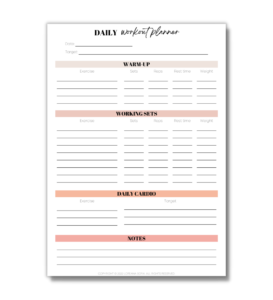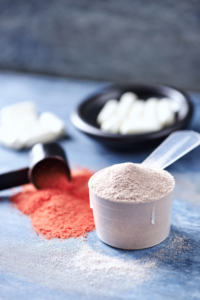Sometimes, we’re so used to reading the same information that we run out of fitness inspiration to push ourselves to the next step. Maybe this will be the next step for you!

Protein and pre-workout powders. If you go to the gym, you’ve most definitely heard about those.
Indeed, when it comes to physique and performance enhancement, the best supplements have been discovered and put to use.
However, what do you do if you hit a plateau? What if you already feel like you’re pushing yourself to the max? Or what if you can’t eat any more proteins calories to bulk or cut further calories?
Well, some supplements might be able to get you out of that rut by providing the right push. And here is a list of some supplements that you might not have considered!
This blog post is all about fitness inspiration when it comes to supplements!
fitness inspiration & supplements
There are a few things that should be discussed before diving into specific supplements that you can play around with. It’s really important for you to read this!
First and foremost, if taken in too high doses, certain supplements can be destructive. Furthermore, if taken in pairs with other supplements, they can be counterproductive. So always be sure to do you research if you like creating your own cocktail of supplements.
Second, it is important that you take supplements as single ingredient formulations. In other words, strictly avoid taking supplements that are sold as “blends”. The reason for this is three-fold:
- You will want to test out the supplement to see when it works best for you (depending on the time or day, time of cycle, fatigue, etc). If you were to take a blend, you really wouldn’t be able to tell which of the ingredients in the blend is the one helping you.
- When it comes to formulating blends, manufacturers tend to skimp on the supplement that is the most expensive. So, though it might promote containing X expensive ingredient, chances are that it is in very low concentration.
- Quality and quantity tends to be better controlled in single ingredient supplements.
Third, I should note that the ultimate goal for anyone should be to need very very few supplements, to not say none at all. Your eating, exercise, sleeping habits (and other) should complement your lifestyle and thereby mitigate any need for supplements. But until you get all that under control, supplements can be helpful while working on other factors.
1. Creatine Monohydrate
This isn’t groundbreaking, but knowing more about it is great for fitness inspiration. I’m sure you’ve heard of creatine before if you know ANYTHING about supplements.
But I just wanted to put this out there because creatine has many more benefits than one might think.
How To Take Creatine Monohydrate
First off, let’s start with the CORRECT way to intake creatine. Creatine does not provide an acute response. In other words, it is not a stimulant like caffeine is, providing a one-time “pump”.
Instead, creatine is stored in skeletal muscles as phosphocreatine. It does build up naturally by the body from the amino acids arginine, glycine and methionine. Therefore, taking creatine monohydrate supplements increases the storages of creatine in the muscles.
Keeping this in mind, creatine should be taken on a daily basis. Taking it as a one-time supplement will do virtually nothing for you. One should take 3-5g of creatine monohydrate per day, maybe a bit more depending on your size.
Benefits of Creatine Monohydrate
The great thing about creatine is how extremely low in side effects it is.
We all know creatine as the gym supplement – the one that allows you to build more muscle and have a bigger supply of energy. It also aids in muscle recovery and fat loss.
However, creatine also plays a role in brain functions. Indeed, the brain loves creatine as a source of fuel! Also, the phosphor-creatine system is particularly important for the forebrain.
These are some things that creatine can support:
- Mood, anxiety
- Executive functions: planning, organizing, cognitive flexibility, time management, inhibition
- Sleep deprivation
- Context-dependant thinking
- Neurodegenerative diseases: Parkinson’s, Alzheimer’s

Want a free
DAILY BRAIN DUMP WORKSHEET?
Start your day on the right foot with this amazing Daily Brain Dump. Fill out the form below and have the Daily Brain Dump worksheet delivered straight to your inbox!
2. Water (What Is Too Little And Too Much?)
We all know that we should be drinking more water, yada yada yada. Not much of a fitness inspiration, you might think? Well, you’re wrong.
There are 2 things that I believe need to be highlighted when it comes to water: how do you know when you actually need to drink water? And is there such a thing as too much?
Dehydration
Dehydration is measured by decrease in bodyweight before and after exercise. Obviously, there are differences to account for this data: bloating, drinking water during workout, etc. But generally speaking, a decrease in bodyweight pre- and post-exercise is the loss of water weight.
A study has indeed shown that even a 2% dehydration can lead to decreases in accuracy and performance. In addition, it also shows that there is an increase in the perception of the difficulty of the exercise.
Basically, this study emphasized the importance of proper hydration in athletes, particularly in sports that require high levels of skill and accuracy, such as basketball or golf.
When you reach 3-5% dehydration, you experience a significant reduction in blood volume, making blood viscous and harder to pump through. If it gets bad enough, you can lose total endurance performance, accuracy, speed and power.
Take note
Caffeine and Dehydration
It is said that coffee can increase dehydration. This is both true and false. COFFEE does not increase dehydration, but CAFFEINE can.
The amount of caffeine it takes to make a regular glass of coffee is outweighed by the amount of water required.
However, if you take highly concentrated forms of caffeine, such as caffeine pills, it definitely has a diuretic effect.
Overhydration
When you go past the level of optimally hydrated, there is a dysregulation of the concentrations of sodium, potassium and chloride between the inside and outside of your cells.
Basically, as with any other liquid, overhydration means that you’re diluting your blood and the things that make up blood.
And the same way that you might experience negative effects from being dehydrated, you can experience the same negative effects from being overhydrated. When it comes to exercise performance, diluted blood can lead to poorer muscle contraction due to less electrical signals.
Other side effects are nausea, headaches, confusion and lethargy.
How Much To Drink
As a base amount, one should drink according to the following rule:
30ml of water * kg of bodyweight
or
0.5oz of water * lb of bodyweight
So, if you weigh 65kg (145lb), you should drink about 2 litres (0.5 gallons) of water per day. Any type of liquids is actually okay. 😄
It is important to note that this does NOT account for sweating or exercise. Also, you do definitely want to be drinking more fluids if you are sick and 
When you are workout, you want to replace 125% of fluid lost during exercise. Most people lose about 500g (1lb) of water during exercise. This doesn’t account for water drank during exercise.
Or, to avoid dehydration during exercise at all, you want to be drinking every 15-20 minutes the following about:
bodyweight in kg * 2.3 = ml of water
or
bodyweight in lb / 30 = oz of water
So, if you weigh 65kg (145lb), that means that you should be drinking 150ml (5oz) every 15-20 minutes. You can drink that all in one shot every 15 minutes, but it would be better to drink it as steadily as possible.
3. Caffeine & Endurance
Like creatine, you’ve surely already used caffeine.
There isn’t news in saying that taking caffeine prior to exercise has a great ergogenic effect (enhancement of physical performance, work capacity, or energy production). This is particularly true if you will be performing an endurance exercise.
So if you like endurance, then this fitness inspiration is great for you!
How much & when to drink caffeine
To no surprise, the amount of caffeine one should take depends on body weight. The formula is quite simple:
1-3 milligrams * body weight in kg
or
0.5-1.5 milligrams * body weight in lbs
So if you weigh about 65kg (145lbs), that equates to a range of 65mg to 195mg of caffeine.
Taking it about 30 minutes before exercise will have definite performance and mental enhancing effects.
Results can be further enhanced if you are someone who regularly drinks caffeine but has abstained from anywhere from 2 to 15 days.
How much caffeine is too much?
Too much of anything can make you sick.
It should also be important for you to know that even the smallest available coffees you can get at coffeeshops generally contain anywhere between 250-350mg of caffeine. And the large can contain as much as 1000mg of caffeine.
On another note, if you are not caffeine adapted, the sudden introduction of caffeine can decrease performance. Even if it would be considered a normal range (as per the formula above), one can experience negative side effects.
So if you are someone who wants to start drinking coffee, you should start bit by bit.
Lastly, due to caffeine’s half life of 4-6 hours (though that largely depends on the person), one should definitely avoid drinking caffeine before bedtime.
However, if you’re someone who enjoys working out at night, it might be a little bit of a hassle. Citrulline can enhance performance when you don’t want caffeine!
Nutrition Coaching
Train hard. Eat well. Build your body one day at a time.
Train hard. Eat well.
Build your body one day at a time.
1-to-1 coaching. A sustainable nutrition plan. A lifetime of knowledge.
4. Beetroot juice, powder or extract
Beetroot juice, powder or extract. Now this is one you might not have heard about.
Benefits of beetroot
Beetroot has shown to enhance performance, especially in moderate to long-term duration.
The main reason is because beetroot reduces fatigue caused by continuous muscle contractions. It is to note that according to the study highlighted above, this benefit no longer happens if the rest period is removed.
Also, beetroot supplementation has shown to reduce the oxygen cost of exercise. In other words, beetroot reduces the amount of oxygen needed to perform a given amount of exercise, likely due to improved mitochondrial efficiency.
On another note, beetroot juice improves anaerobic capacity, such as the anaerobic threshold, peak power and average power.
How beetroot supplementation works
Beetroot contains nitrate, which can then be converted into nitric oxide.
When nitric oxide is in your system, it can induce vasodilation (expansion of blood vessels). The increased “space” in the blood vessels allows for an increase blood flow to the muscles, allowing the latter to be more oxygenated and fed with nutrients.
Furthermore, nitric oxide also allows for greater cellular energy efficiency – the ability of a cell to produce energy in the form of ATP with the minimum amount of energy input. Also, it allows for enhanced muscle contraction.
5. Alpha-GPC
Alpha-GPC is not a stimulant in the traditional sense. Talk about fitness inspiration.
Benefits of Alpha-GPC
How Alpha-GPC Works
Lots of specific jargon upcoming, though I try to explain it in the most simple terms possible. If you’re not interested in the details, then feel free to skip ahead!
Alpha-GPC (alpha-glycerophosphocholine – try saying that 3 times fast 
Alpha-GPC seems to be rapidly absorbed as it can easily cross the blood-brain barrier. When metabolized, Alpha-GPC becomes a precursor of acetylcholine, a neurotransmitter involved in memory, attention as well as skeletal muscle contraction.

Want a free
DAILY WORKOUT PLANNER?
Watch how your performance, physique and goals improve just by the simple task of using a Workout Planner. Fill out the form below and have the Workout Planner delivered straight to your inbox!
6. Rhodiola Rosea
Rhodiola Rosea (RR) is a herb that seems to have adaptogenic properties, meaning it may help the body cope with stress and fatigue by managing cortisol levels.
However, it is important to note that managing cortisol levels isn’t always beneficial.
For example, if you do a short bout of intense exercise, cortisol will shoot up. Equally, in the morning, when exposed to sunlight, cortisol will increase. You do not want to have cortisol being low in this situation.
Similarly, if you are already feeling down or lethargic, taking cortisol suppressants will make you feel worse.
Rhodiola Rosea for Athletes
According to many studies, supplementing in RR has improved outcomes for exercise performance and recovery.
Most interestingly, RR decreases the ratings of perceived exertion. Indeed, this can arise due to the fact that RR increases mental clarity, focus and concentration. Similar to Alpha-GPC, it can be beneficial to athletes who have to practice a tedious exercise over and over again.
Furthermore, it can also help reduce stress and anxiety, which can be particularly beneficial for athletes who may experience high levels of stress due to training and competition.
RR has other benefits:
- Reduction in pain and muscle damage
- Enhanced antioxidant capacity
- Increased power output and physical performance
- Increased immunity
That’s it! I hope it helped you in finding supplements that can boost your performance and push your fitness inspiration!
This blog post was all about the fitness inspiration you need!
xx LS
Share this post








